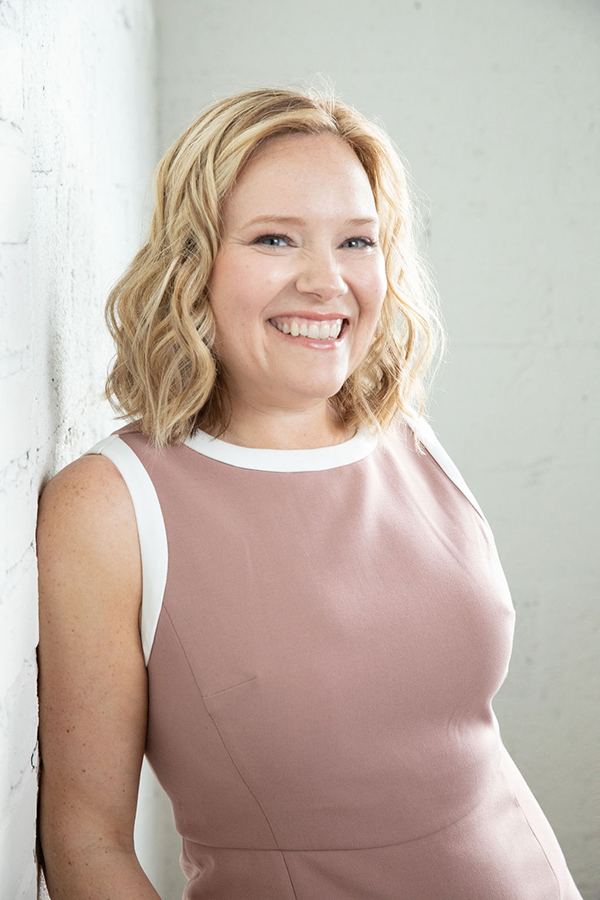In the beginning of my sales career, I spent a lot of time worrying about what to say. I worked hard to memorize sales scripts and phrases that were “guaranteed” to help me make a sale, but instead I found myself getting lost. My brain was panicked asking myself: “What was next in my script?” or “I asked the right question, but what was the answer?” and even the occasional “What’s this guy’s name again?” I was missing out on making connections I should have made because I was literally thinking too hard about what I was going to say next. I felt the pressure to keep the conversation moving while advancing the sale and I neglected to pay attention to what the prospect said. Finally, I attended a training where the instructor presented a revolutionary concept. Instead of dragging the conversation along, simply ask relevant questions. In fact, the less you say, the better. People love talking about themselves. Let them! Ask questions to allow your prospect to reveal a need, to share a problem, or to express frustration. Only then will they be willing to accept your solution. Yes, this demonstrates empathy, but it also allows the prospect to realize how much they need your product or service. Without asking relevant questions, you are just a sales person reciting a script, worrying about what to say next.
Questioning in sales is vital to uncovering the true needs and desires of your prospect. It’s the only way to ensure you are able to provide a meaningful solution to their problem. Here are 5 questions you should always ask during your first meeting with a potential client:
1. What is the top challenge you are facing right now?
When framed as it pertains to your product or service, this question helps the prospect provide a focused answer on their immediate needs. Given the chance, people love to chat about the various parts of their jobs they’d like to change or improve upon. This question prompts the prospect to prioritize and guides the conversation toward a specific problem the prospect would like to address.
2. How important is it to find a solution quickly?
This question reveals if time is a motivator for the sales decision. Knowing this information allows the sales professional to gage the immediacy of the problem and helps them when offering meaningful solutions. Answers either way speak to the priority of the identified problem and give the sales professional insight to the decision-making process of the prospect’s organization
3. How will finding a solution affect your financial goals?
Most people have budgets to respect and financial goals they want to achieve. This question introduces the “money conversation” within the context of achieving the financial goals of the prospect. Maybe a solution must be delayed because of budgetary constraints. Maybe the solution has not been assigned a budget. This question guides the prospect to consider the financial implications of finding a solution and allows the sales professional to get a better idea of what solutions work best for the prospect within their budget.
4. What would finding the right solution mean for you?
This is a personal question. Notice the question is not “What would finding the right solution mean for your company?” This question is about the individual. Understanding the implications of a decision for the prospect personally gives the sales professional further insight into what solution would bring the most meaning and value. People want to look competent at work. They want to be regarded positively in the community. The answer to this question reveals how the sales professional can offer a solution that is both good for the company AND for the individual.
5. What are you hoping to find that you haven’t found in other solutions?
Most people are naturally uncomfortable when discussing competition. This question disarms the prospect by acknowledging that they are probably considering multiple competing solutions. It helps frame the decision as a “team effort” with you and the prospect on one side looking critically at the solutions offered by a competitor. The answer to the question helps the sales professional learn more about what the prospect is looking for in a solution while also providing a bit of competitive intel.

And the one question you should never ask: “Wouldn’t be better if….”
Prospects recognize a leading question from miles away, and they are immediately turned off when they hear one. A leading question is any question that leads someone to answer in the affirmative. As an example “Wouldn’t it be better if all your projects came in on time and on budget? If so, you need our revolutionary scheduling software!” The answer to the question is obviously “yes” but the asker is more concerned about presenting a solution to a general problem. Successful sales professionals know true value lies in offering a specialized solution to a specific problem, and the only way to get to the root of a specific problem, is to ask the right questions.
Let’s Connect
Are you a sales professional looking for support in your quest to reach the next level of your career? Connect with Rebecca Kilday on Linked In or Instagram for information on all things “sales” including practical advice from seasoned professionals, hard lessons learned, and what it truly means to Sell INSPIRED.
Prospects recognize a leading question from miles away, and they are immediately turned off when they hear one. A leading question is any question that leads someone to answer in the affirmative. As an example “Wouldn’t it be better if all your projects came in on time and on budget? If so, you need our revolutionary scheduling software!” The answer to the question is obviously “yes” but the asker is more concerned about presenting a solution to a general problem. Successful sales professionals know true value lies in offering a specialized solution to a specific problem, and the only way to get to the root of a specific problem, is to ask the right questions.







